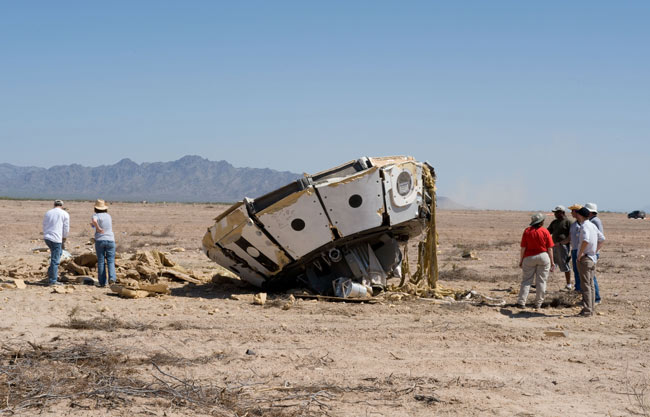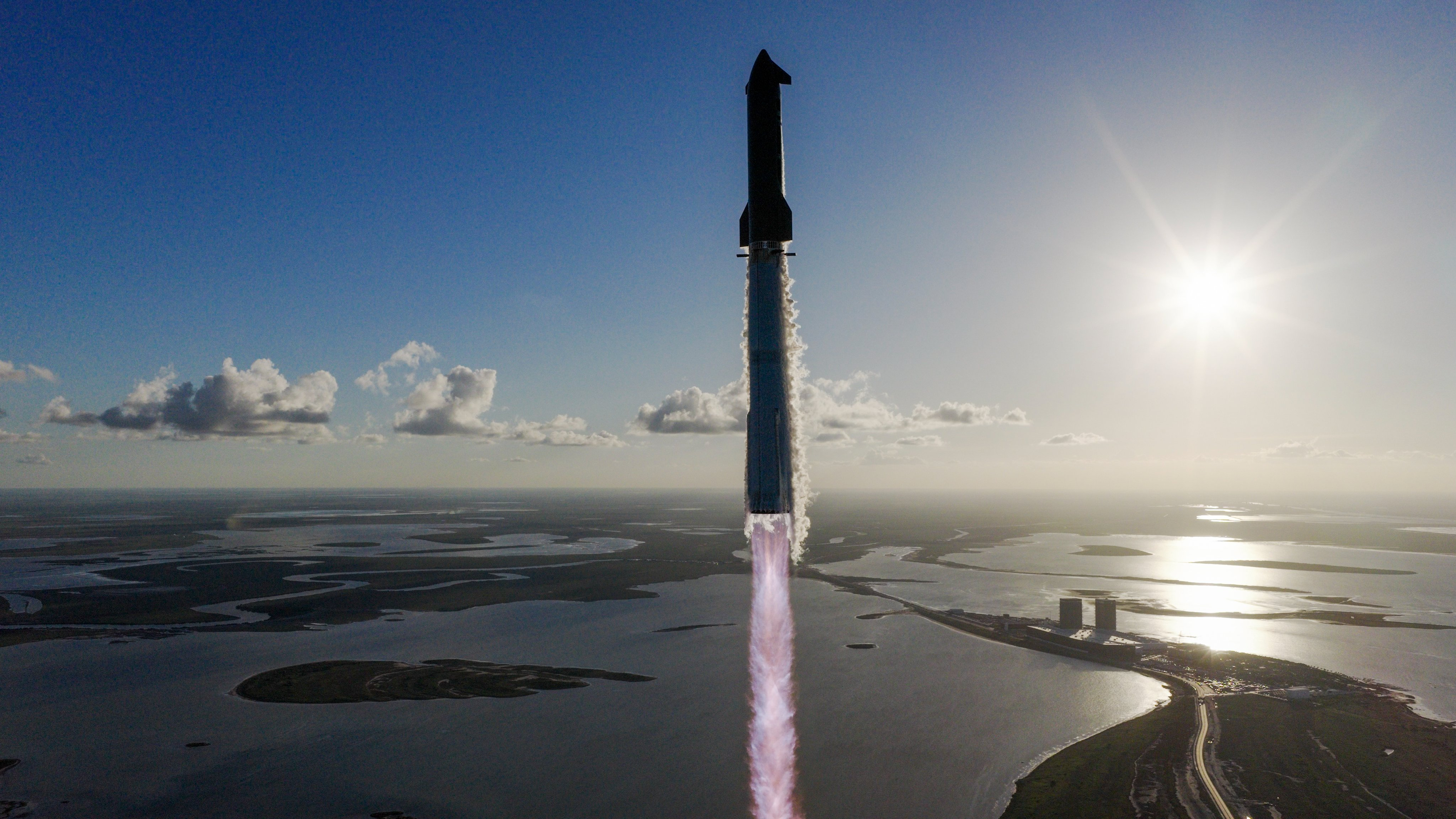Parachute Test Fails for NASA's New Spaceship

Amock-up of NASA's Orion space shuttle successor twisted, tumbled and fell fromthousands of feet up after a parachute failed to inflate properly during a July31 test.
Theprogrammer chute was designed to stabilize the mock-up before beginning a testof its parachute recovery system, but instead sent the capsule careeningtoward the desert floor at the U.S. Army's Yuma Proving Grounds in Arizona.
"Thisis the most complicated parachute test NASA has run since the '60?s," saidCarol Evans, test manager for the parachute system at NASA's Johnson SpaceCenter in Houston. "We are taking a close look at what caused the set-upchutes to malfunction. A failure of set-up parachutes is actually one of themost common occurrences in this sort of test."
TheOrion crew module is part of NASA's Constellationprogram slated to return astronauts to the moon by 2020. Orion will carryastronauts into orbit atop the Ares I rocket to dock with an orbiting Earthdeparture stage previously launched by an Ares V rocket, and from there proceedto the moon.
Thespace shuttles are scheduled to retirefrom service as NASA's workhorses in 2010.
Thefailure occurred in one of 10 parachutes that make up the testing equipment,and not in the parachute recovery system itself.
Someof the parachutes helped the mock-up get clear of the C-17 airplane whichcarried the test capsule up to a drop height of 25,000 feet (7,620 meters). Theprogrammer chute that failed to inflate was designed to help two otherstabilization chutes get the capsule into the right orientation, beforereleasing at a predetermined time to allow the parachute recovery system totake over.
Breaking space news, the latest updates on rocket launches, skywatching events and more!
TheOrion recovery parachute system is based on the same eight-chute system usedfor the Apollo missions, for use in case of a launch abort.
Twodrogue parachutes first deploy to slow and stabilize the capsule so that itpoints in the right direction. Once the drogue chutes get cut away, three pilotchutes deploy to each pull out one of the three main 116-feet (35-meter)diameter parachutes that are meant to ensure a safe landing speed.
Themock-up was already dropping faster than intended by the time the drogueparachutes deployed during the test. The drogue parachutes cut away immediatelyand sent the test capsule into freefall.
Thefalling mock-up began to tumble out of control, and the resulting forces pulledthe main parachutes out and tore away two of them. The third battered parachuteheld, but could not slow the falling mock-up on its own.
Afinalimpact on the ground left the mock-up severely damaged. NASA engineers andmanagers are looking to test procedures and test hardware and set-up, as wellas video and photograph evidence, to figure out what might have led to theprogrammer chute's failure.
NASAannounced in August that the first manned flight test won'tlaunch until 2014 at the earliest, or four years after the space shuttleretires. Earlier this week, the agency unveiled plans to add a shockabsorbing system to smooth out excessive shaking of its Ares I rocketduring launch.
- Video - Mock Orion Capsule Crashes to Earth
- Video - NASA's Constellation Journey Begins - Part 1, Part 2
- Video - Back to the Moon with NASA's Constellation

Space.com is the premier source of space exploration, innovation and astronomy news, chronicling (and celebrating) humanity's ongoing expansion across the final frontier. Originally founded in 1999, Space.com is, and always has been, the passion of writers and editors who are space fans and also trained journalists. Our current news team consists of Editor-in-Chief Tariq Malik; Editor Hanneke Weitering, Senior Space Writer Mike Wall; Senior Writer Meghan Bartels; Senior Writer Chelsea Gohd, Senior Writer Tereza Pultarova and Staff Writer Alexander Cox, focusing on e-commerce. Senior Producer Steve Spaleta oversees our space videos, with Diana Whitcroft as our Social Media Editor.
